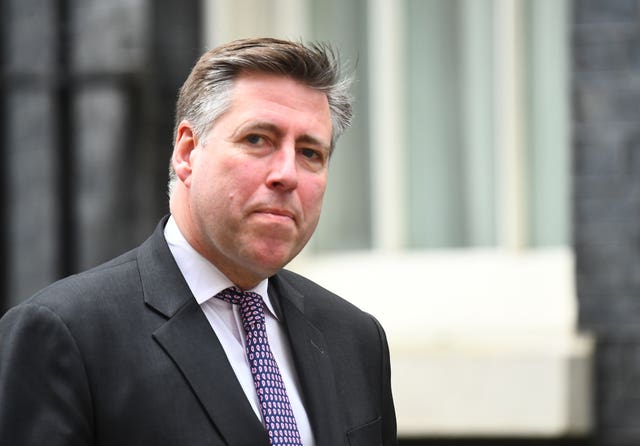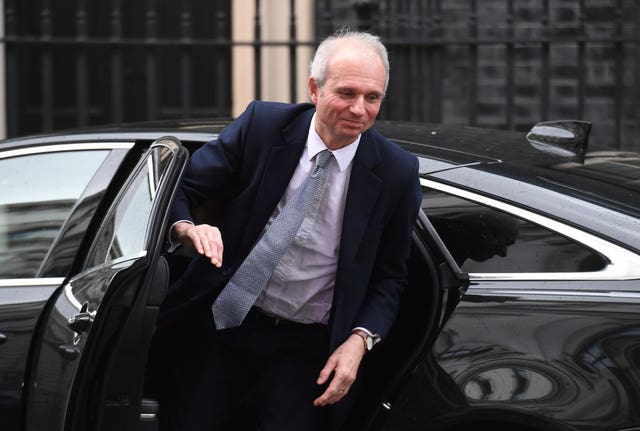PM refuses to set out terms of her departure from Downing Street
Theresa May will meet the Tory backbench 1922 Committee’s executive next week to discuss her future.

Theresa May has rebuffed demands to set out a timetable for her departure from No 10 amid growing pressure from Tory MPs to make way for a new leader.
The chairman of the Conservative backbench 1922 Committee Sir Graham Brady, who met the Prime Minister privately on Tuesday, made clear she had not offered any further clarity about her future.
He said she would meet the committee’s 18-strong executive next week amid grass roots fury over the party’s worst local elections performance in 24 years.

Sir Graham suggested she could make a final effort to get her Brexit deal through Parliament before European elections on May 23, when the party is expected to suffer even heavier losses.
He said he expected ministers to bring forward the Withdrawal Agreement Bill – required to ratify her deal in law – in the “near future”.
“The executive is very keen to meet the Prime Minister and will have a full opportunity to discuss and to reach whatever conclusions it wishes to reach next week,” Sir Graham said.
“It’s my understanding it’s the Government’s intention to bring a second reading of the Bill forward in the near future, certainly the intention is before the European election takes place.”
At Prime Minister’s Questions earlier, Mr May faced a direct call from a Conservative MP to stand down.
Brexit-backing Andrea Jenkyns told Mrs May she had “failed” in EU withdrawal negotiations and forfeited the trust of the public.
“The public no longer trust her to run Brexit negotiations,” she said.
“Isn’t it time to step aside and let someone else lead our country, our party and the Brexit negotiations?”
Mrs May retorted: “This is not an issue about me and it’s not an issue about her.
“If it were an issue about me and the way I vote, we would already have left the European Union.”
Downing Street made clear the Prime Minister was not ready to go beyond her earlier promise to the 1922 to quit as Tory leader when the first phase of Brexit negotiations – dealing with the divorce terms – is complete.
“The PM made a very generous and bold offer to the 1922 Committee a few weeks ago that she would see through phase one of the Brexit process and she would leave and open up for new leadership for phase two,” a No 10 source said.
“That’s the timetable she is working towards. She wants to get Brexit done.”
With her effective deputy David Lidington suggesting he hoped a deal could be concluded by July, there is speculation she may seek to hang on until the annual party conference in the autumn.
Nigel Evans, the executive secretary of the 1922, warned she would need to give MPs some greater certainty before then.
“August 1 is the next new date,” he told the BBC.
“It could be kicked down the road even further. That’s not what we want. We want some clarity from the Prime Minister.”

Meanwhile, Cabinet minister Andrea Leadsom said she is “seriously considering” standing for the Conservative leadership, which will be triggered when Mrs May stands down.
Ms Leadsom, who stood for the leadership in 2016 but pulled out to give Mrs May a clear run at the job, told ITV1’s Good Morning Britain: “I’ve supported her for the last three years to get Brexit over the line.
“She has said she’s going so yes I am seriously considering standing.”
Meanwhile, talks between the Government and Labour on a compromise deal to end the deadlock are set to resume next week, following a second day of “extended” discussions in Whitehall.
A No 10 spokesman said the latest meeting “demonstrates the seriousness with which both sides are approaching these talks”.
The spokesman added: “Over the coming days, there will be more meetings of the bilateral working groups and further exchanges of documents as we seek to nail down the details of what has been discussed.”
A Labour Party spokesman said: “After the second day of talks this week, the negotiating teams are working to establish scope for agreement and will meet again at the beginning of next week.”
Earlier, Mr Lidington, who is leading the Government team, acknowledged the discussions were not proving easy, but said there was a responsibility on all parties to try to find a way out of the impasse.
“It has been difficult at times – I won’t deny that – because there are differences between the two political parties,” he said.
“But I think all Members of Parliament have a responsibility to try to work together.”





